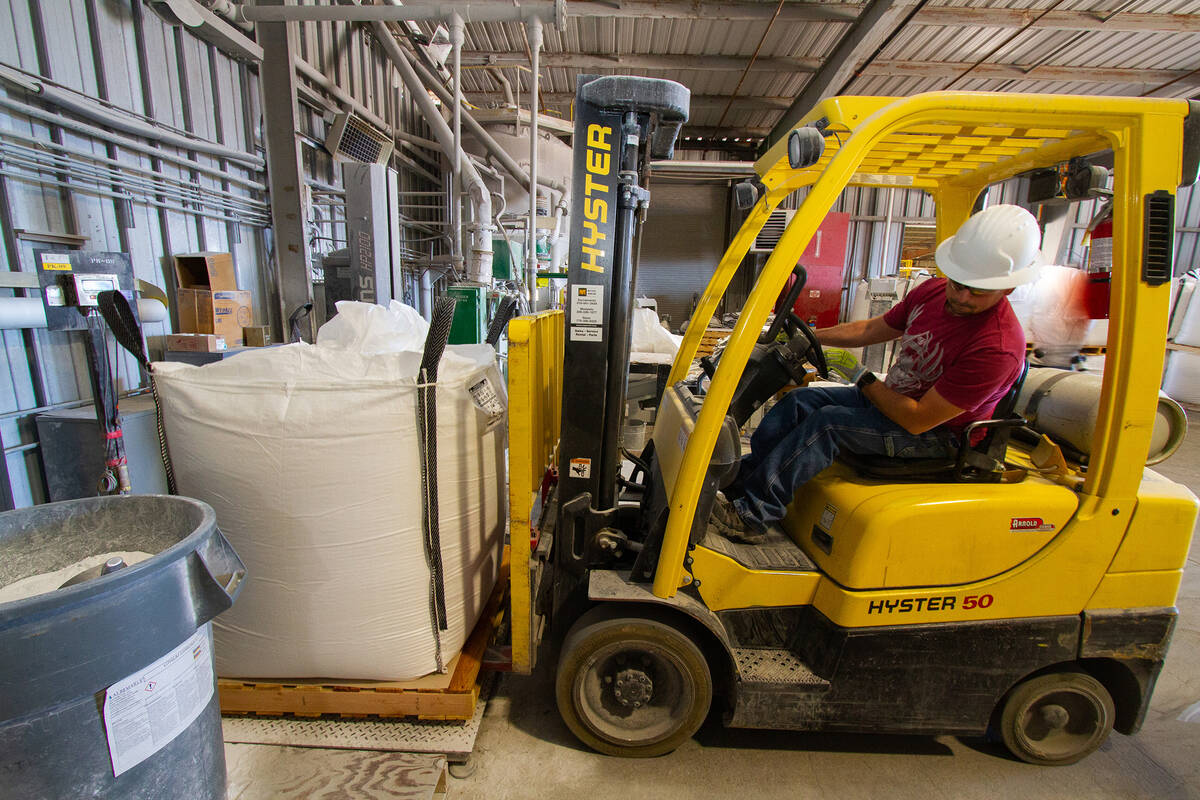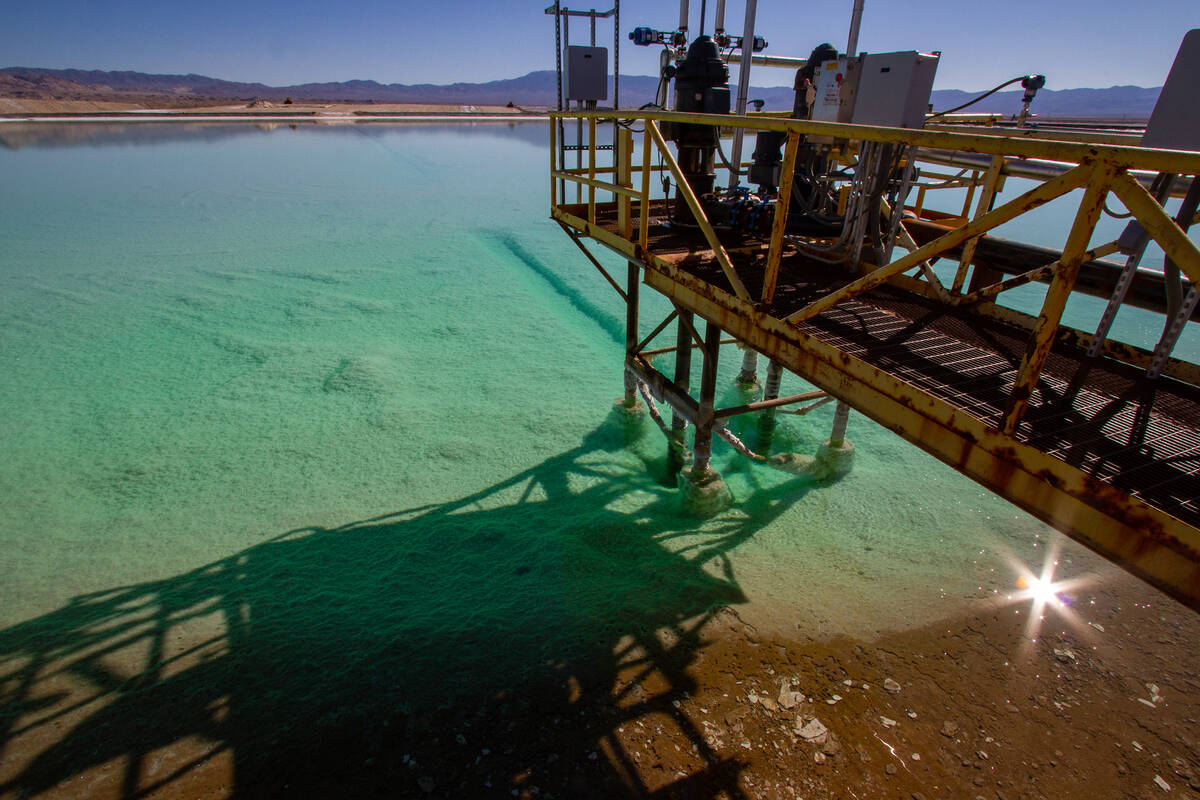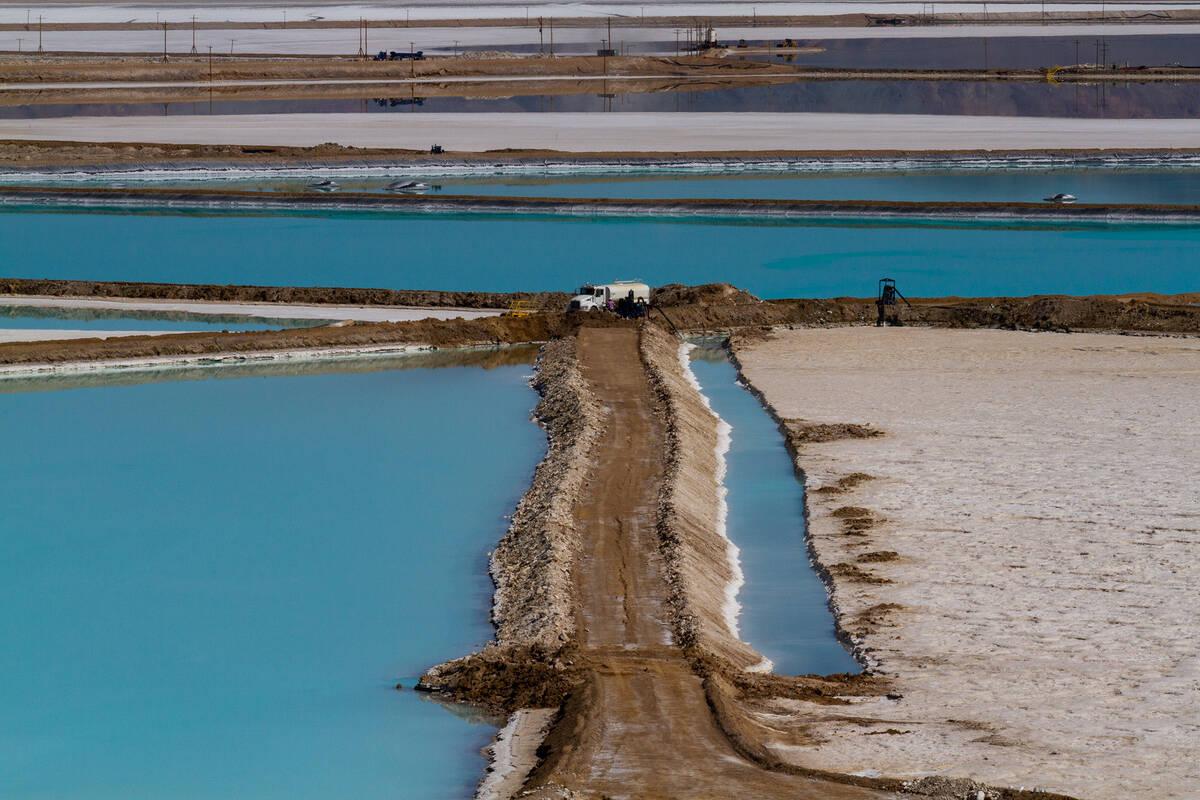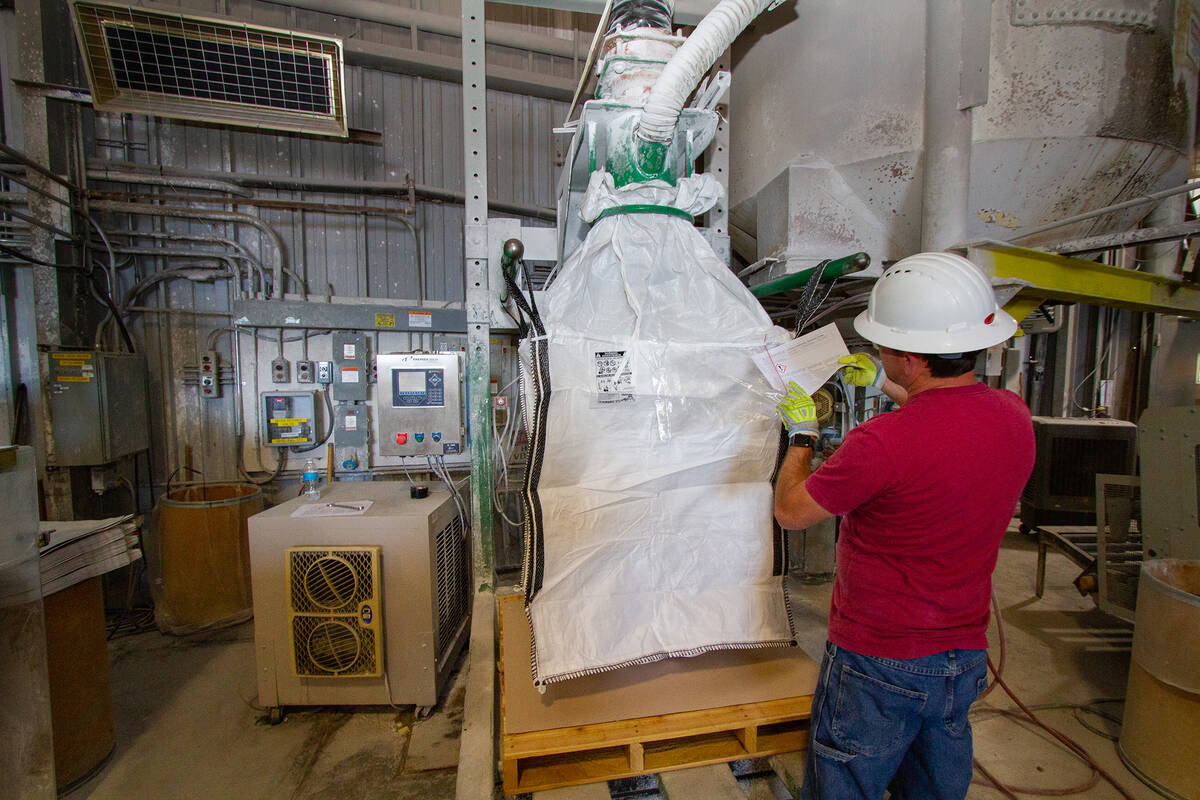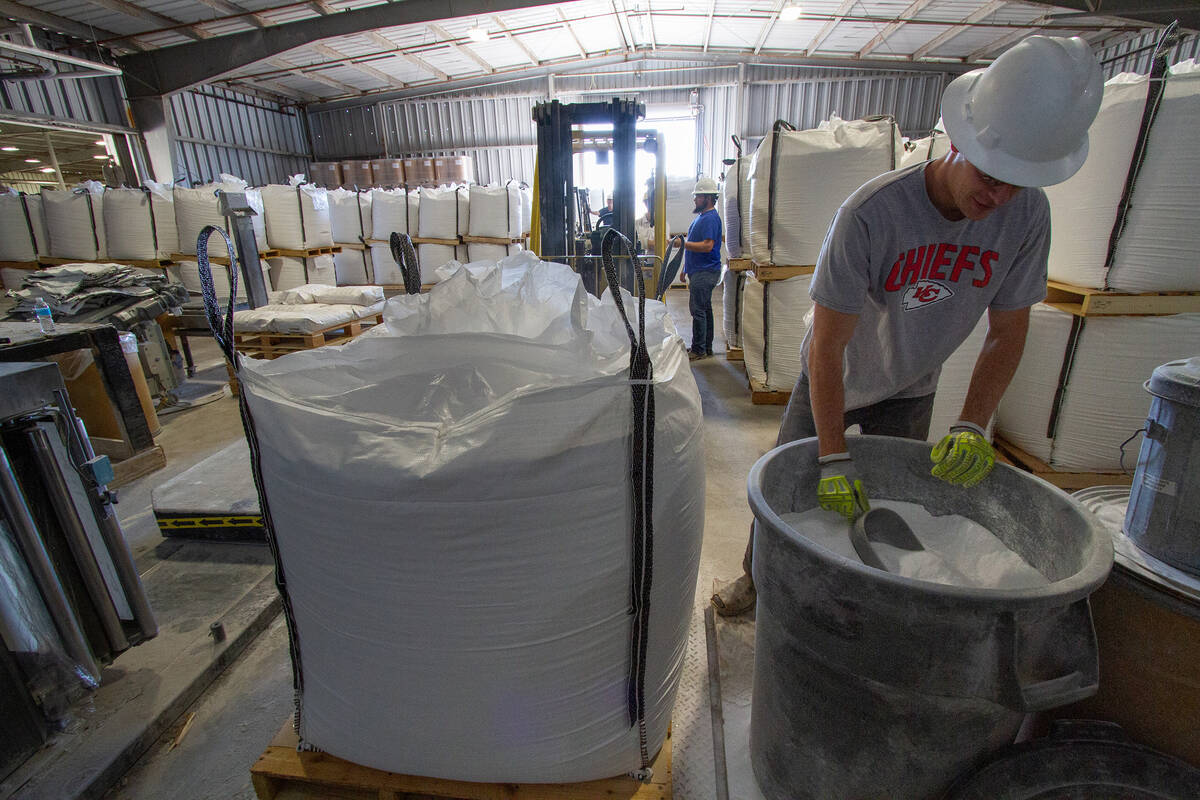PHOTOS: Go inside the Silver Peak lithium mine
SILVER PEAK — Albemarle Corp., a North Carolina-based specialty chemical manufacturing company, operates the only active lithium mine in the United States at Silver Peak.
Located 30 miles west of Goldfield on Highway 265, its lithium operations are a massive, sprawling complex that occupies a huge basin surrounded on all sides by mountains.
Albemarle’s Silver Peak operations produce 1 percent of the world’s total mined lithium and as of 2020, the company was the largest provider of lithium for electric vehicles.
Lithium mining is unlike the silver mining that occurred in the mid 1860s in this historic town of 121 residents. Instead of underground mines or open-pit mining, Albemarle, which employs about 100 workers at the site, pumps lithium-rich brine out of six different aquifers into a series of evaporation ponds.
The aquifers, at a depth between 300 and 3,000 feet, have collected lithium and other elements from the geologically unique surrounding ancient volcanic ground. When the “weak” brine, which is four times saltier than the ocean, is pumped out of the aquifers, it contains .1 percent lithium.
Albermarle maintains 23 evaporation ponds, ranging in size from 11 acres up to 750 acres. About
18.5 million gallons of brine are pumped out per day into the first-stage of a three-stage evaporation pond system.
The aquifers are constantly naturally recharged and never run dry. Each of the three stages precipitates out unwanted salts and elements from the brine, while always keeping the lithium in suspension. The evaporation process takes between 18 and 24 months, as the brine becomes more concentrated and viscous. Lime is added in the third stage to precipitate out magnesium.
The depths and concentration of lithium in the ponds are constantly monitored by Albemarle employees, and when the “strong” brine is ready, it is pumped to a processing and packaging facility where it is filtered, pressed, dried into a white powder, lithium carbonate, at a 5% concentration of lithium. It is then packaged in 1-metric-ton bags for shipment to North Carolina. The facility produces six metric tons of lithium carbonate per hour. The final refining processing happens at Albemarle’s North Carolina facility.
John Clausen is a freelance journalist based in Pahrump.


